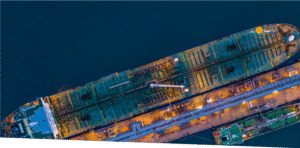
This year’s Port State Control Concentrated Inspection Campaign (PSC CIC) will focus on ballast water management, DNV has announced.
The CIC is set to take place from 1 September to 30 November 2025.
Every year, PSC regimes determine a specific focus area during regular inspections. For 2025, the Paris and Tokyo MoUs have agreed to run a CIC on the topic of ballast water management (BWM). It is expected that the majority of PSC MoUs will participate in this year’s CIC. Continue reading “PSC CIC on ballast water management”










